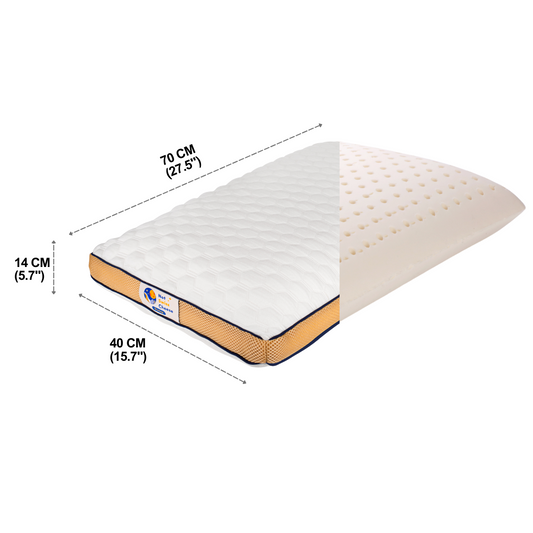Struggling with stress and poor sleep? You’re not alone. Emotional distress and unhealthy sleep patterns are closely linked, creating a cycle that can harm both mental and physical health. Here’s what you need to know:
- Unhealthy Sleep Patterns: Sleeping less than 7 hours or more than 8 hours is tied to higher risks of anxiety, depression, and emotional distress.
- Stress Disrupts Sleep: Elevated cortisol, muscle tension, and irregular sleep cycles caused by stress make it harder to rest.
- Mental Health Impact: Poor sleep increases the likelihood of mood disorders like anxiety and depression, with insomniacs being 5x more likely to develop depression.
- Breaking the Cycle: Consistent sleep schedules, stress management techniques like mindfulness, and a calming sleep environment can help.
Quick Tip: Aim for 7–8 hours of sleep, process emotions before bed, and create a quiet, dark, and comfortable sleep space.
Want to know how to improve your sleep and emotional health? Keep reading for actionable strategies and insights.
Sleep, Anxiety, and Insomnia: How to Sleep Better When You're Anxious
How Emotions Affect Sleep Patterns
Emotional distress doesn’t just affect how we feel - it also impacts how we sleep. On average, American adults get just 6.7 hours of sleep per night, falling short of the recommended seven to nine hours . Stress triggers physical and behavioral changes that interfere with sleep, creating a cycle where stress disrupts rest, and poor sleep heightens stress.
Stress Effects on Sleep Quality
Stress and sleep are closely connected. In fact, 43% of adults report lying awake at night due to stress within the past month . This creates a feedback loop: stress interrupts sleep, and lack of quality sleep makes us more reactive to stress.
"Just like our electronics need to be charged, sleep may recharge or reset the brain to optimize functioning" .
Stress physically disrupts sleep in several ways:
| Physical Change | Impact on Sleep | Statistic |
|---|---|---|
| Elevated Cortisol | Trouble falling or staying asleep | 42% report fair/poor sleep quality |
| Muscle Tension | Physical discomfort during rest | 37% experience stress-related fatigue |
| Disrupted Sleep-Wake Cycle | Irregular sleep patterns | 53% feel sluggish or lazy |
Ongoing Sleep Problems
The long-term effects of emotional distress on sleep are hard to ignore. Research shows that adults with higher stress levels sleep nearly an hour less than those with lower stress levels (6.2 hours vs. 7.1 hours) . This leads to:
- 38% reporting increased irritability
- 29% struggling with focus or concentration
- 25% losing motivation for daily tasks
"REM-sleep-dreaming functions as a central phase of the masked or unmasked reactivation and the reprocessing of emotions and emotional occurrences during the day...Dream production, especially in REM-sleep, which contains vivid simulations of painful and threatening events within real life, facilitates the processing of distressing emotions" .
Chronic sleep issues often develop during periods of emotional distress. During the COVID-19 pandemic, nearly 20% of people met the criteria for insomnia disorder - more than double the pre-pandemic rate . Additionally, those experiencing emotional distress are 55% more likely to report unhealthy sleep patterns . Addressing both emotional health and sleep habits is key to breaking this cycle.
sbb-itb-7fb8e9c
Sleep's Effect on Mental Health
Lack of quality sleep directly affects mental health by disrupting emotional regulation and problem-solving abilities .
Sleep and Emotion Processing
Research from Johns Hopkins revealed that disrupted sleep caused a 31% drop in positive moods the following day . This creates a tough cycle where poor sleep leads to emotional instability, which can then further disrupt sleep patterns.
| Sleep Issue | Mental Health Impact | Percentage Affected |
|---|---|---|
| Interrupted Sleep | Decreased Positive Mood | 31% reduction |
| Clinical Insomnia | Higher Depression Risk | 10 times greater risk |
| Depression Diagnosis | Sleep Problems | 75% of cases |
This breakdown in emotional processing can lead to broader mood challenges.
Sleep Duration and Mood Disorders
Both too little and too much sleep can contribute to mental health struggles. During the COVID-19 pandemic, cases of clinical insomnia doubled, coinciding with spikes in anxiety and depression .
Sleep patterns are closely tied to mood disorders:
- Depression Risk: Between 15% and 20% of people with insomnia go on to develop major depression .
- Anxiety Connection: 64% of those with anxiety disorders report poor sleep quality .
- Treatment Challenges: Roughly 40% of individuals with insomnia also suffer from depression, while up to 80% of people with depression experience insomnia .
Studies have shown that limiting sleep to just 4.5 hours significantly increases feelings of stress, anger, and sadness. However, mood improves once normal sleep patterns are restored .
"Just like our electronics need to be charged, sleep may recharge or reset the brain to optimize functioning" .
Getting the right amount of sleep is essential for maintaining mental health. Both too little and too much sleep can amplify emotional distress.
Solutions for Better Sleep and Mental Health
Improving your sleep and managing stress can significantly enhance both your rest and emotional well-being. Let’s dive into some actionable strategies to help you make lasting changes.
Setting Regular Sleep Times
Dr. Dustin Cotliar, a Sleep Physician, notes: "Many seek supplements, yet small changes in sleep routines are most effective" .
Here’s how to fine-tune your schedule:
- Set a bedtime that allows for 7–9 hours of sleep.
- Make gradual adjustments by shifting your schedule 15–30 minutes at a time.
- Stay consistent, even on weekends.
- Get morning sunlight, which helps regulate your sleep-wake cycle.
Once your sleep routine is consistent, tackling stress becomes the next step.
Stress Relief Methods
"Mindfulness can set the stage for sleep by allowing you to be more aware of your thoughts and to be able to let go of those anxieties instead of getting stuck on them" .
Try these stress-relief techniques:
- Deep breathing: Quickly reduces stress.
- Body scan meditation: Helps release muscle tension.
- Progressive muscle relaxation: Promotes both physical and mental calm.
- Mindful movement: Gentle yoga or stretching can ease anxiety and improve sleep quality.
These methods help prepare your mind and body for rest.
Bedroom Setup Tips
Creating the right sleep environment is just as important as routines and stress management. Consider these adjustments:
- Light: Use blackout curtains and eliminate electronic light sources.
- Sound: Try white noise machines or earplugs to block out disturbances.
- Air: Keep the room well-ventilated.
- Temperature: Aim for a cool 60–72°F.
- Comfort: Opt for breathable bedding and supportive pillows.
For example, Not Swiss Cheese offers Talalay latex pillows for medium-soft support with cooling features, while their Dunlop options cater to those needing firmer neck support.
"Use these recommendations according to your budget. Just remember the take-home message here is to have a quiet, serene, dark and comfortable space for sleep" .
A peaceful sleep environment complements the routines and stress-relief techniques, setting you up for better rest and mental health.
Conclusion: Taking Action
Main Points Review
Emotional distress and sleep quality are closely connected. Studies show that emotional distress can lead to unhealthy sleep patterns, and poor sleep, in turn, makes it harder to manage emotions effectively . This creates a cycle where one issue feeds into the other.
To break this cycle, focus on three essential areas:
- Emotional awareness: Understanding and processing emotions helps build resilience for better sleep .
- Sleep environment: A calm, comfortable, and distraction-free room supports restful sleep .
- Consistent habits: Sticking to regular sleep schedules and incorporating stress management techniques can improve both sleep and emotional health .
Getting Started
Here are a few actionable steps to help improve sleep and ease emotional distress:
- Process your emotions: Spend time writing down your thoughts and feelings about an hour before bed. This practice can help you release lingering stress .
- Set up your sleep space: Make your bedroom a relaxing haven by keeping it cool, eliminating electronics, and dimming the lights .
- Monitor progress: If sleep issues persist for more than two weeks, consider reaching out to a healthcare professional .
Even small changes in how you manage emotions and prepare for sleep can make a big difference. Research highlights that quality sleep is essential for handling daily stress and maintaining emotional balance .








